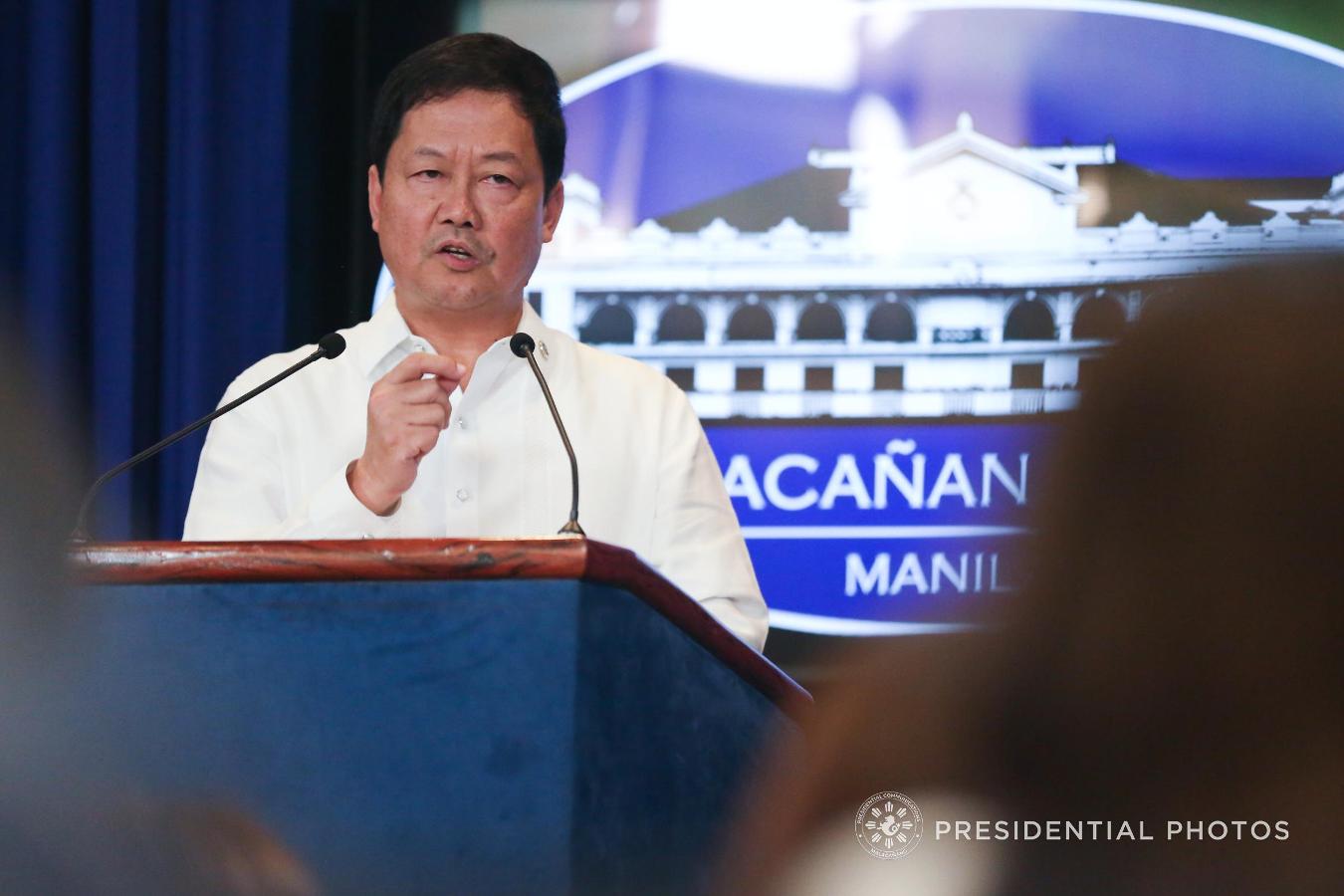
MANILA – Justice Secretary Menardo Guevarra on Tuesday said the lawyer, who opened up bank accounts possibly linked to scandal-hit European financial tech firm Wirecard, told government investigators that he is now receiving death threats.
“(Lawyer) Mark Tolentino said he was hired by his principal early this year to provide consultancy services. He undertook to submit a formal affidavit to the NBI. He said he’s receiving death threats,” Guevarra told reporters.
Tolentino was accompanied by counsel, Dennis Manalo, when he appeared before the National Bureau of Investigation (NBI) Monday.
Tolentino earlier said through his law firm, he opened six bank accounts in Makati and Taguig City after he was approached by walk-in clients, including foreigners who said they would be setting up a financial tech company in the Philippines.
The investors, who identified themselves as representatives of a Singaporean firm, allegedly asked Tolentino to be a trustee of the company.
Last week, Guevarra said electronic records of the Bureau of Immigration (BI) showed that Jan Marsalek, former Wirecard chief operating officer, flew into the country last June 23 and left Cebu the next morning for China.
He, however, said security closed-circuit television (CCTV) camera footage did not show Marsalek arriving in the country and that there is no record of any flight to China scheduled on the morning of June 24 from Cebu due to the coronavirus disease 2019 (Covid-19) lockdown.
The Department of Justice (DOJ), upon consultation with the Bangko Sentral ng Pilipinas, directed the NBI to investigate certain individuals involved in the scandal.
The NBI will coordinate with the Anti-Money Laundering Council in the initial phase of the investigation.
Wirecard saw its shares crash after its auditor said it could not trace 1.9 billion euros in cash, representing roughly a quarter of Wirecard’s balance sheet.
Markus Braun, Wirecard’s chief executive officer, had been arrested in Germany after being accused of inflating the company’s balance sheet.
The BSP earlier said none of the USD2.1-billion missing funds from the German firm entered the Philippines’ financial system.